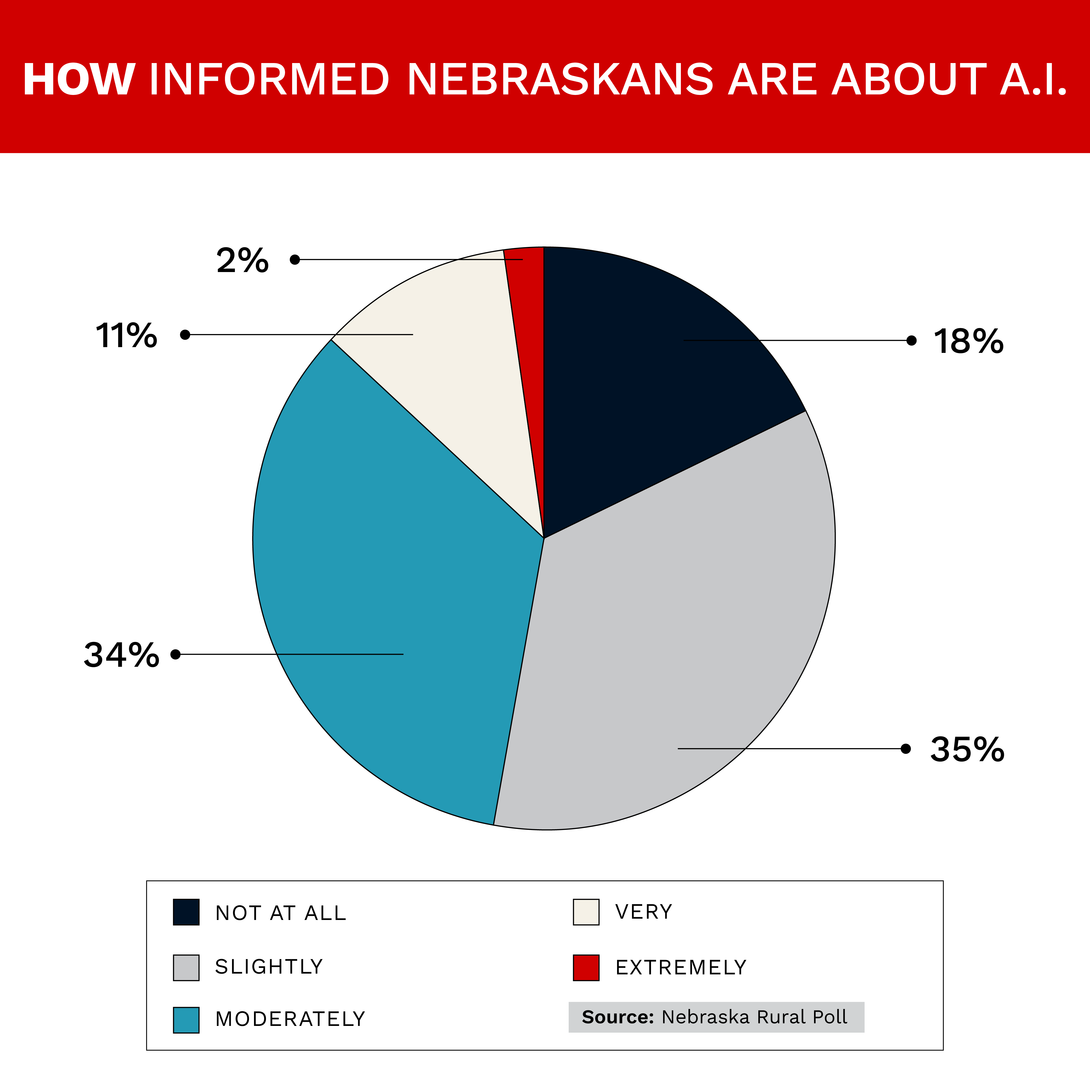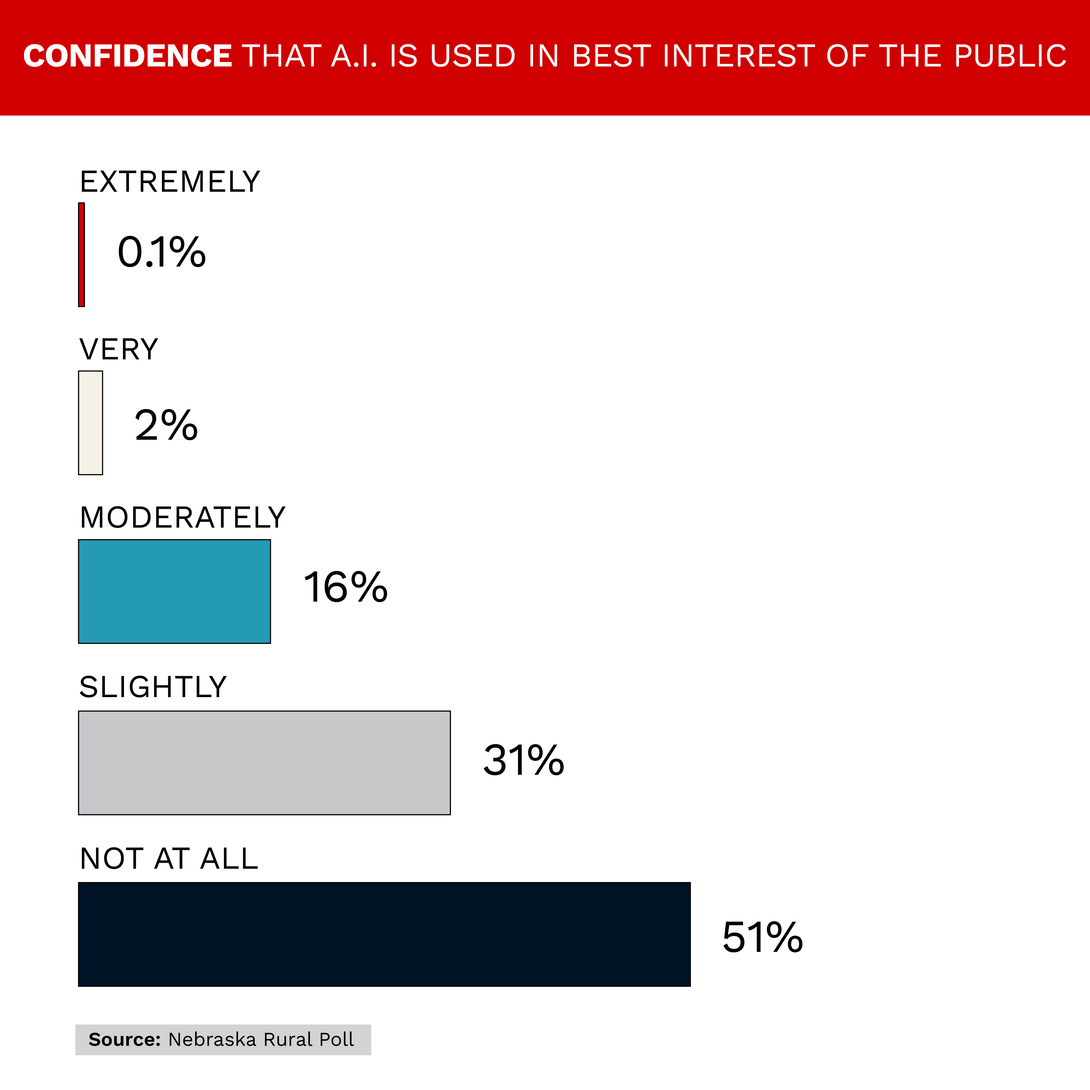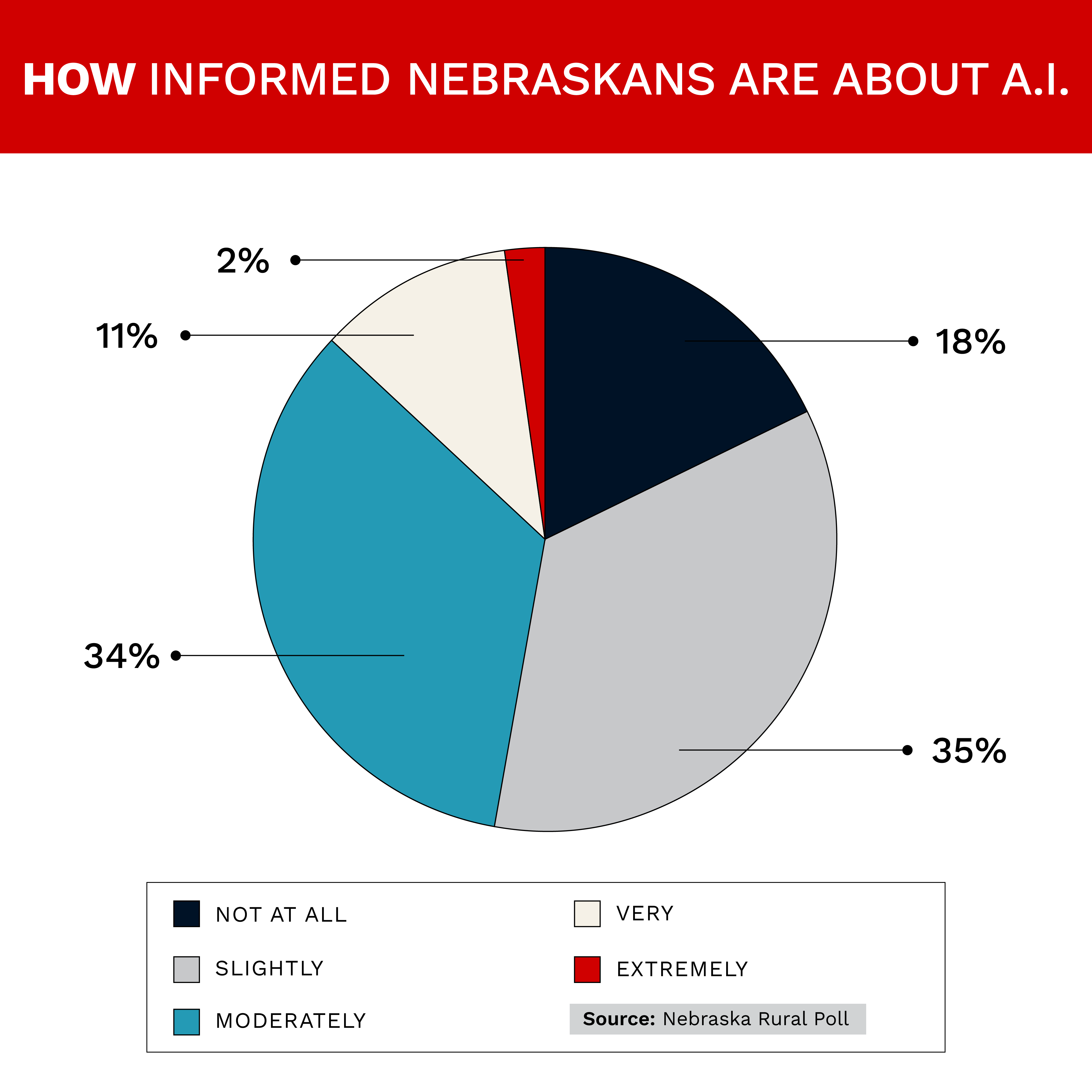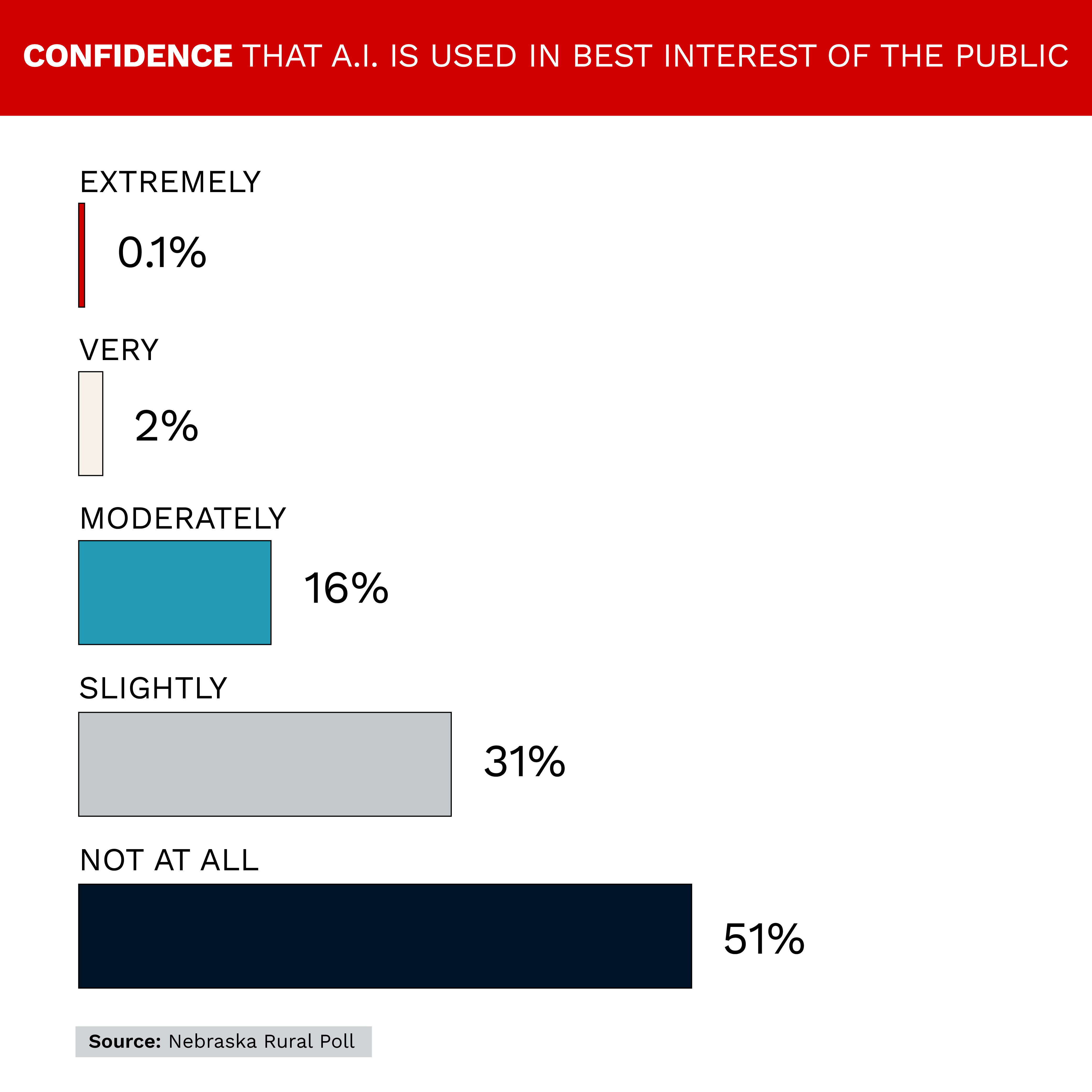
Most rural Nebraskans are not well informed about artificial intelligence and are not confident it is being used in the best interest of the public, according to the 2024 Nebraska Rural Poll.
About 27% of rural Nebraskans surveyed have used AI tools, but most have not. However, 55% of respondents under age 30 have used these tools.

Slightly more than half of respondents are either not at all (18%) or slightly (35%) informed about artificial intelligence. About 34% are moderately informed, and just 13% are either very or extremely informed about AI.
And most rural Nebraskans surveyed are either not at all or slightly confident that AI is being used in the public’s best interest. Just more than half are not at all confident that it is being used in the public’s best interest, and 31% are only slightly confident. Very few are very or extremely confident, according to the poll.
Knowledge of artificial intelligence seems to play a role in how trusting people are of its use, said Becky Vogt, the Rural Poll manager. Respondents who say they are more informed about AI are more likely to be at least moderately confident that it is being used in people’s best interest. Almost a third of respondents who say they are very or extremely informed about AI are at least moderately confident of this, compared to just over one in 10 who say they are not at all or slightly informed about AI.

“What we’re seeing by these indicators is a clear connection between knowledge and trust when it comes to artificial intelligence,” Vogt said. “Rural Nebraskans who are more informed about AI are more confident in its use for the public good, and vice versa, which highlights the importance of education and awareness in this rapidly evolving field.”
Opinions are mixed about the impacts of artificial intelligence. Most believe AI will have a negative impact on the following: job opportunities (64%), society (62%), the workforce (57%), bias and discrimination (55%) and the U.S. economy (53%). However, many see it as having a positive impact on health care (44%), the way people access information (43%), agriculture (40%) and transportation (34%). About 29% of rural Nebraskans surveyed see it as having no impact on their personal well-being in the next 10 years, and about 20% don’t know what the impacts will be for each of the items listed.
“While there is uncertainty and concern about the potential negative impacts of AI on areas like jobs and society, many rural Nebraskans see opportunities for positive change, particularly in health care, agriculture and how we access information,” Vogt said. “These mixed views reflect both the promise and the challenges of integrating AI into daily life.”
To learn more about rural Nebraskans’ perceptions of artificial intelligence, policymakers, community leaders and members of the public are invited to a Rural Poll webinar at 10 a.m. Central Dec. 11. More details and registration are available here.
The Rural Poll is the largest annual poll gauging rural Nebraskans’ perceptions about policy and quality of life. Questionnaires were mailed to more than 5,800 households in Nebraska in late spring and summer, with 1,010 households — representing 86 of the state’s 93 counties — responding. The margin of error for the poll is plus-or-minus 3%. Rural Prosperity Nebraska conducts the poll with funding from Nebraska Extension.
Share
News Release Contact(s)
Related Links
Tags
High Resolution Photos

HIGH RESOLUTION PHOTOS








